Exclusive: Top Woman Anna Karamanu: Europe and Women’s Rights by Papazisis Publications
On the occasion of the release of her new book, the author speaks exclusively to eirinika.gr about women’s rights, the changes over the years, and her personal struggles for them.
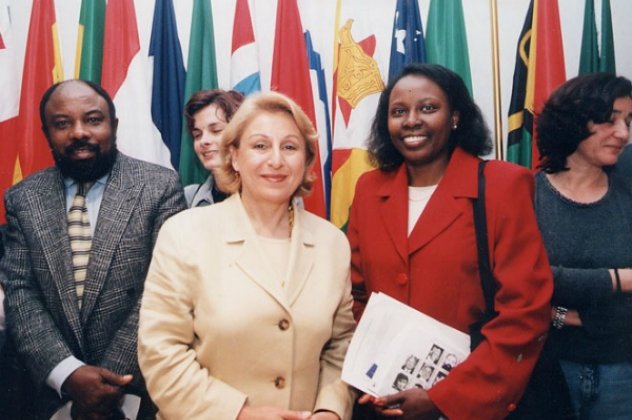
The feminist movement in Greece and women’s demands began almost immediately after the 1821 revolution, under the positive influence of the messages of the Enlightenment and the French Revolution, which reached Greece mainly through the intellectuals of the diaspora.
As historically recorded, women enlisted and contributed greatly to the liberation struggle against the Ottomans. However, their contribution was not only unappreciated, but they faced strong opposition when, after the liberation, they demanded fundamental human rights. The heroines of 1821 were sidelined and ignored by all post-revolutionary Constitutions, until the Constitution of 1975.
Women were excluded from the political body, without rights, isolated in the family home, under the authority of husbands, fathers, and brothers. During the same period, the Orthodox Church played a key role in maintaining traditional gender stereotypes. The main demand of women in the post-Ottoman era was the right to education and decent employment.
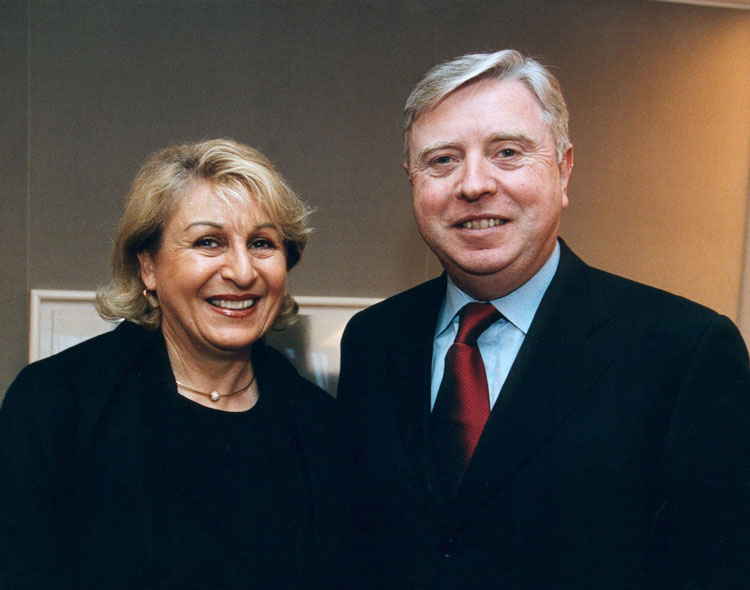
What are the milestones in the journey and struggles for women’s rights in Greece?
1) The first schools for girls that were established during the time of Kapodistrias.In 1829, a school with 20 female students operated in Argos. In 1830, the first secondary school for girls was founded in Ermoupolis, Syros, following a decision by the Ermoupolis Municipality to build a school specifically for young women. This was followed by the establishment of the Hill School in 1831, and later the Zappeion and Arsakeio schools. A systematic effort to provide professional training for women in “female” professions and to combat illiteracy was made by the Women’s Association for Women’s Education, founded by Kalliope Kehagia in Athens in 1872. This was the era when parents who allowed their daughters to learn reading and writing were considered pioneers of progressivism.
2) The publication of the magazine *I Efimeris ton Kyrion* (The Ladies’ Journal), the most important women’s publication of the time. It was continuously published from 1887 to 1918. The editor was the pioneering and most prominent Greek feminist Kalliroi Parren, a teacher and journalist, who dedicated her life to the fight for women’s rights. The role of the first women’s magazines and literary works, as well as women’s organizations, was very important in the negative post-Ottoman Greece regarding women’s demands. The slogan “vote for women” was first expressed in 1887-88 in many European countries and was reproduced by *I Efimeris ton Kyrion* of Kalliroi Parren.
The constitutional revision of 1911 and subsequently the legislative work of Eleftherios Venizelos, which created a favorable institutional framework, where various social groups, including educated women, found fertile ground for the demands of their rights. During the period 1911-1920, the first serious effort was made by the modern Greek state for rationalization and modernization. In the early 20th century, many active feminist organizations were founded, following European models.
4) End of World War I: Struggle for civil, political, and social rights.Women’s Suffrage! For the first time, the main demand for women’s political rights is presented with such clarity and determination. On January 16, 1920, the Women’s Rights Association was founded. It was the first organization with a purely feminist agenda, as explicitly stated: “We demand political, civil, and economic rights, equal and the same for women and men.” Three years later, in 1923, the Association’s magazine, *O Agonas tis Gynaikas* (The Struggle of Women), was published, which became the longest-running magazine in Greece. The Association played a significant role in the struggle for and securing the rights of Greek women, continuing into the modern era.
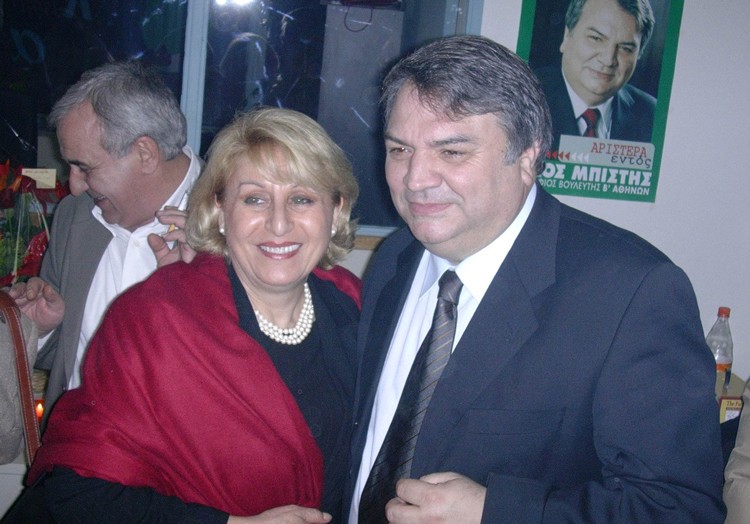
5) The Asia Minor Catastrophe of 1922, which led millions of refugees to Greece, was a catalyst for the progress of the feminist movement. The women from Asia Minor, many of whom were educated, multilingual, and Europeanized, brought with them new social behavior models, introduced new forms of employment, and contributed to the development of the country. The number of working women began to rise, thus creating the first female workforce.
6) Recognition of the right to vote in municipal elections for literate women over 30 years old. February 1930. In the municipal elections of 1934, only 240 women reached the polls. The restrictions on municipal voting were later abolished with Law 2159 of 1952, when women participated en masse in municipal elections.
7) Interwar period: International action of women: Women’s organizations showed great interest in developing relationships of trust and cooperation with European nations, particularly the Balkan countries, and engaged in significant international and diplomatic action. The Women’s Rights Association created in 1923 the Small Women’s “Entente,” a forum for dialogue on all international issues. It is noteworthy that during the interwar period, particularly in the 1930s, when militarism, National Socialism, and aggression had reached new heights in Europe, women, through their international action, focused on issues of peace, disarmament, peaceful resolution of disputes, and compromise solutions. Under the Metaxas dictatorship, the feminist organizations’ activist efforts stopped, and with the outbreak of World War II, their attention turned to their participation in the National Resistance
8) 1945 and 1948: Historic decisions and declarations by the UN for gender equality. 1946: National Women’s Conference, which led to the founding of the Panhellenic Union of Women (PEG), which was dissolved with the onset of the Civil War. The demand for the right to vote was renewed after 1949, within the favorable framework created by the UN decisions, as well as the publication, in 1949, of the landmark book by Simone de Beauvoir *The Second Sex*. The position of women at that time in Greece was deplorable, in all areas.

9) 1952: Ratification of the UN international conventions for equality of political rights and equal access of genders to all public offices. With Law 2159/1952, Greek women were granted the right to vote and stand for election, and with Law 3192/1955, the right to be employed in all public services, except for the military and the church.
10) 1957: Treaty of Rome: equal pay for equal work. This created the foundation for significant action by women’s organizations for wage equality and the improvement of working conditions.
11) 1964: Educational Reform. The most significant milestone in educational policy, which paved the way for the mass participation of women in education, was the 1964 reform under the government of Georgios Papandreou, with Law 4379, which established free education. This was greatly contributed to by the great intellectual and philosopher Evangelos Papanoutsos.
12 )Constitution of 1975: democratization and Europeanization: Greek men and women have equal rights and obligations (Article 4, paragraph 2). The constitutional guarantee of gender equality was the second major milestone, following the recognition of political rights in 1952. The 1975 Constitution, for the first time, refers to equal rights. A significant boost to women’s demands was also given by the UN’s declaration of 1975 as the International Year of the Woman.
13) 1983: New Family Law. With Greece’s accession to the European Community in 1981, a wind of modernization and Europeanization blew through the country. The reform of the Family Law brought about major changes to the existing legislation and was a decisive step in modernizing Civil Law. The new law was considered the most progressive in Europe. In the same year, with Law 1342/1983, the UN Convention (CEDAW) for the elimination of all discrimination against women was ratified.
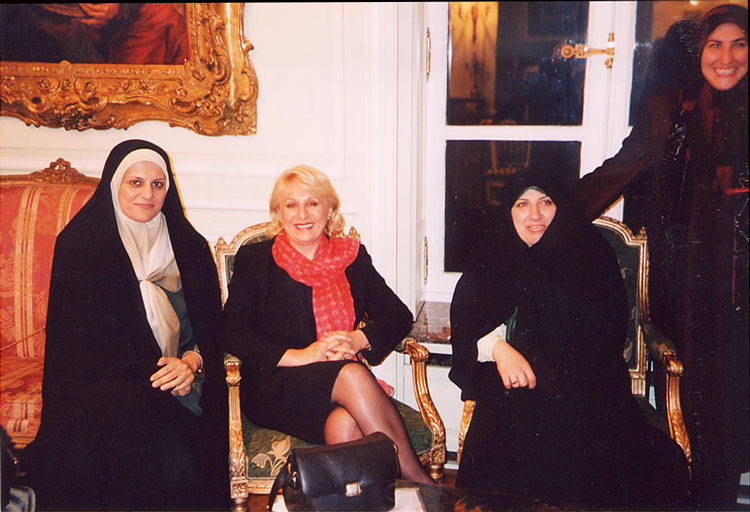
14) 1984: Equality in Employment Relations.In 1984, international labor conventions that had been pending for decades were ratified. Laws 1423/1984 and 1424/1984 ratified International Labor Conventions 122 and 111, respectively. Law 1483/84 promoted the combination of professional and family life, while Law 1426/1984 ratified the European Social Charter. The establishment of Law 1414/1984, which applied the principle of gender equality in employment relations, marked the most significant step toward Europeanization and the integration of the European Community Directives 75/117 and 27/207 into Greek law, concerning equal pay and equal treatment in the labor market.
15) 2001, Constitutional Amendment and addition of paragraph 2 to Article 116, which clarifies that taking positive measures to promote equality between men and women does not constitute discrimination based on gender. Most importantly, it states that the state is obligated to take action to eliminate the inequalities that exist in practice.
16) Legislation for the establishment of gender quotas in the ballots of local and national elections.,legislation for the establishment of gender quotas in service and administrative councils or other collective governance bodies, as well as in the staffing of research and technology committees. The measure began with Law 2839 of 2000 (Article 6, paragraph 1) for the first and second levels of local government and was completed with Articles 34 of P.D. 96/2007 and 3 of Law 3636/2008, which state that for the declaration of electoral lists by political parties, the number of candidates from each gender must be at least one-third of the total number of their candidates across the country. This law paved the way for increasing the number of women elected to democratic institutions and decision-making centers.
My book provides extensive historical knowledge about the major milestones of feminist struggles in Greece and Turkey, two neighboring countries with significant differences, but also many similarities.
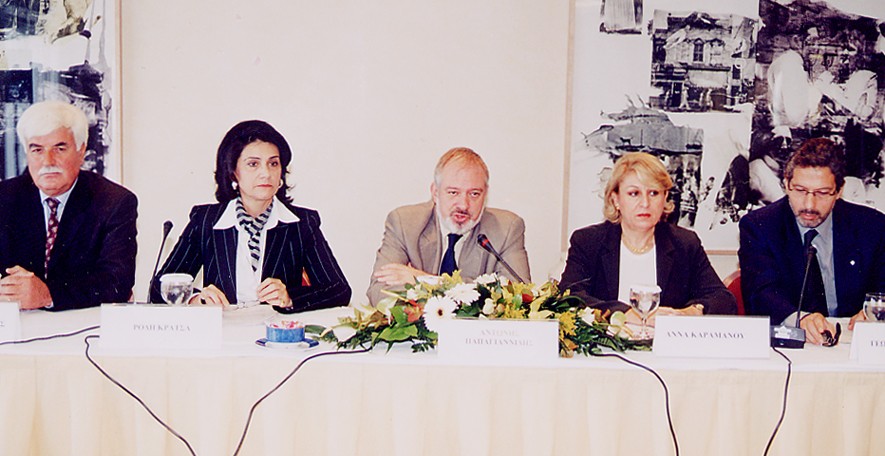
How much have things changed from 1980 until now?
Legislation is the most visible area of progress that has been made. The Greek legal system ensures not only equal rights and obligations for both genders, but also defines the state’s responsibilities. In this regard, significant progress has been achieved. The variable “legislation” is certainly a necessary but not sufficient condition for ensuring equality in daily life. Enormous progress has been made in the meritocratic field of education, with women’s triumphant journey, as they outperform men both quantitatively and qualitatively at all levels, including postgraduate studies. Progress has also been made in societal perceptions regarding rights and gender equality, as recently demonstrated by the passing of the Civil Partnership Law.
However, despite the undeniable progress, the gap between men and women remains: inequalities and discrimination in employment, as evidenced by the higher unemployment rate among women, underrepresentation in politics and public offices, unequal distribution of family responsibilities and caregiving duties, gender-based violence. Political will was primarily expressed through the Europeanization of legislation, as an obligation of the country, but the political system is reluctant to confront the constraints of tradition and the symbols of patriarchy. I believe that substantial equality cannot be achieved without upheavals in the cultural foundations of discrimination and inequality.
Politics continues to remain a privileged space of male dominance. The historically highest percentage of elected women was achieved in the national elections of January 25, 2015, with the election of 69 women (23%). This number decreased by 10 in the most recent elections, despite the fact that they were held using a list system, which has worked in favor of women in all European countries, obviously except for Greece. In New Democracy, there is no woman among the contenders for the leadership of the party. The World Economic Forum, in its gender equality indices for 2015, ranks Greece in the unfortunate 87th position out of 145 countries.
The economic crisis is used as an excuse for further deterioration of the position of women. However, the critical nature of the situation demands action in order to harness the abilities and ideas of women in centers of power and decision-making. The Political Women’s Union, of which I am vice-president, with the flag of European values and human rights, dynamically challenges patriarchal structures, the monolithism of tradition, and gender power relations, and intensifies its actions to achieve gender balance in the political system and crisis management. In the current situation of Greece, the mobilization of women is required for the country’s exit from the crisis. Women must succeed where men have failed!
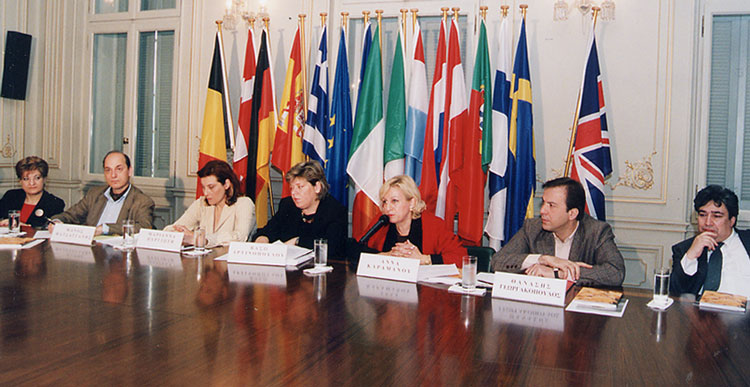
What were the most difficult and the most beautiful moments of this race?
The most difficult moments are linked to the reactions, the resistances, and the irrationality of the system, especially the Church. They are also connected to my own guilt for not fulfilling traditional family roles. Personally, I faced intense criticism and harsh attacks when, in 2001 and 2003, as a Member of the European Parliament and President of the Women’s Rights Committee, I succeeded in having a resolution passed by the European Parliament plenary in favor of abolishing the “status quo” of Mount Athos. No political party supported me. Very few women did. I felt that I was simply ahead of all the political parties…
My stance on this, as well as on the priesthood for women, has not changed. I continue to support them, despite the reactions I encounter from the extremely conservative circles. I believe that gender equality cannot be achieved without criticism and changes in the religious foundations of discrimination and inequality against women, and without rewriting theological myths. My book and research demonstrate that gender equality is hindered by the entanglement of the Church with the state and the imposition of views and practices incompatible with democracy and human rights.
Individual voices in favor of ecclesiastical modernization certainly exist among politicians and some enlightened members of the Church, but they are drowned in the ocean of conservatism and fanaticism. I believe that the monolithic structures of the Orthodox Church will not allow it to soon endorse gender equality, as other Christian churches in the West have done, where women hold even the highest positions in the Church. What can we do, it’s a race with obstacles…
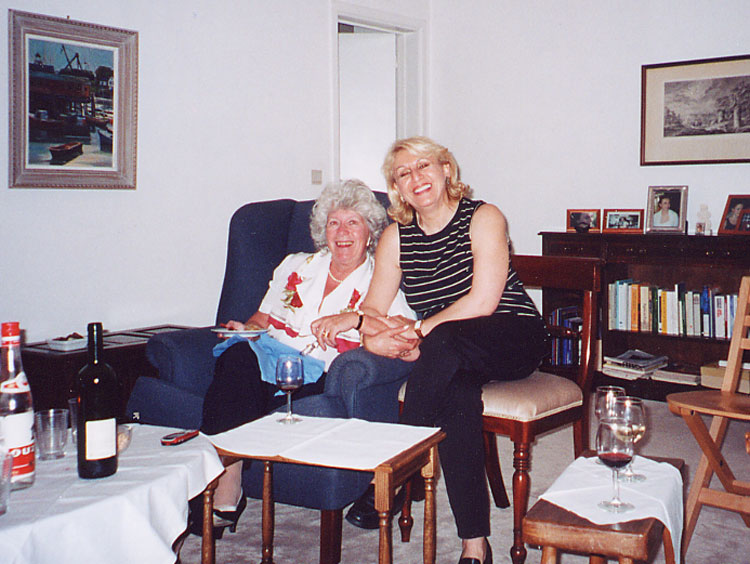
The most beautiful moments…
I feel proud of my participation in the feminist struggles over the past 40 years, because they have been full of adventure, full of knowledge… Because they truly enriched and gave meaning and purpose to my life. One of the most beautiful moments was when I was elected president of the Women’s Rights and Gender Equality Committee of the European Parliament, almost unanimously supported by women, especially the female Members of the European Parliament from Spain, Italy, and Germany, and we fought the hard battle for the European Constitution. Also, earlier, in 1992, my selection as the national representative of the European Commission’s Network for the promotion of gender-balanced participation in politics and decision-making centers gave me great joy, because I shared my experience with other European women and contributed to the action plan of the Network. I especially enjoyed processing the “arguments” and then applying the theory in practice, with the pan-European campaign and the strengthening of women’s eligibility in the 1994 European elections. Later, the campaign was expanded to the national elections and continues unabated…
Today, it fills me with joy and satisfaction to see young women enjoying freedoms, participation, and rights that were unthinkable just a few decades ago.
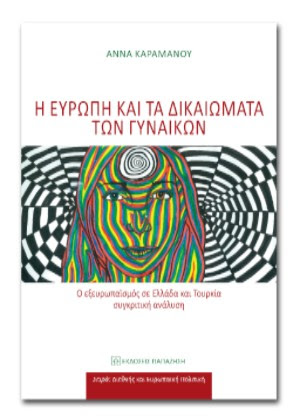
Anna Karamanou was born in Pyrgos, Ilia. She studied at the National and Kapodistrian University of Athens, holding a degree in Greek and English Philology, a Master’s in European and International Studies, and a PhD in Political Science and Public Administration.
She worked for 23 years at OTE, where she developed trade union and feminist activism, and served as an expert for the European Commission in two networks on gender equality policy. She was a Member of the European Parliament (1997-2004), elected to the Bureau of the Progressive Alliance of Socialists and Democrats and President of the Women’s Rights Committee. She was also awarded the İpekçi Award for her contribution to Greek-Turkish rapprochement (1999), and was a founding member and vice president of the Political Women’s Union.